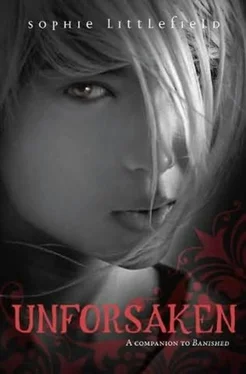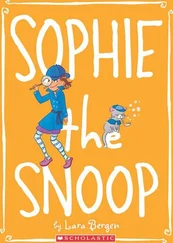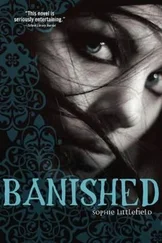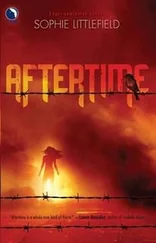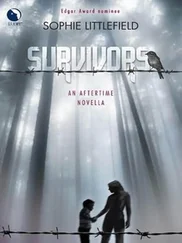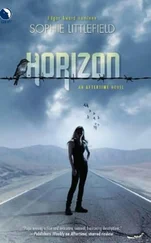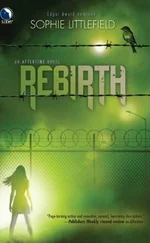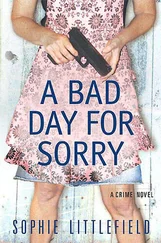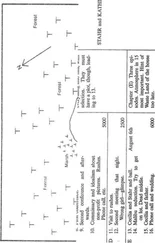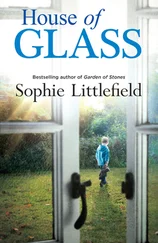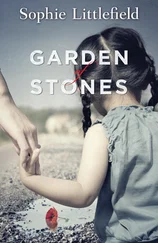Soon, soon. Chub stood right next to the door, hide hide hide because when the person came he was going to run fast. The mind-picture showed him where to go and he would be fast, and the person would not be fast enough to catch him.
Chub waited, ready to run.
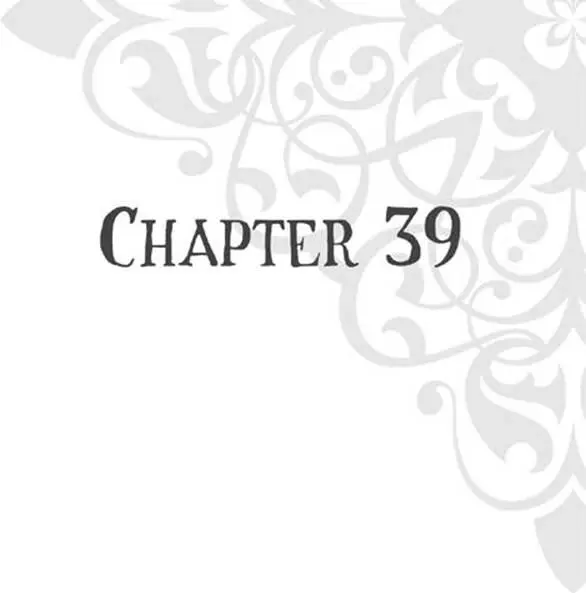
THE SUN WAS SINKING into the horizon when I pulled out onto the road, the car bucking and lurching in my uncertain hands. The brakes on Dr. Grace’s car were far more sensitive than the ones on Prairie’s Camry, and the steering wheel spun too easily, making the car swerve and dip as I barreled down the road away from the office park.
The garage had been nearly empty when I popped the grate only a dozen yards from where I’d climbed into the ceiling. I’d counted fewer than two dozen cars, and it had been easy to find the Audi. I didn’t see anyone as I drove it out of the complex, but I knew the garage was monitored, and I didn’t know how much of a lead I could count on.
I half expected to see headlights in my rearview mirror, but I had an advantage: sixteen years in Gypsum, sixteen years of exploring every road and field and farm. So I knew exactly which roads intersected others, which dirt tracks overgrown with weeds led to leaning barns and which to shortcuts to neighboring land.
I took a looping, haphazard route, and when I finally wound back to State Road 9, there was no one behind me, no telltale dust cloud-nothing at all except the purple evening sky, the first fireflies of the night dancing in the air.
When I passed the house I had lived in until a few months earlier, I saw that all the windows had been broken. Plywood was nailed over a few of them, but the front door had been ripped from the hinges and a sodden pile of torn-out carpet lay in the yard.
Everyone in town knew that Gram had dealt drugs, and not long ago three people had died here. No wonder someone had trashed the place. Before I could think of a single thing to miss about the old house, it was in my rearview mirror, and the thickening evening obscured the woods as I drove the last mile to the edge of Trashtown. I eased the car to the side of the road and watched the lights winking on in the rows of shacks lining both sides of Morrin Street.
The Morries all lived here, the scrawny mean-eyed boys with dirt under their nails, the pale mumbling girls with long stringy hair obscuring their faces. There were fifteen, maybe twenty, Morrie kids in my old high school; more in the younger grades, sullen brothers and sisters whose past was entwined with mine and Prairie’s, even Anna’s and Kaz’s. Their futures were bleak; their weak Banished blood condemned them to meanness and shiftlessness and addiction, hardscrabble lives lived out here in Trashtown. Few would escape, the way Prairie had. Or even the way I had, by accident.
The Morries had always hated me, though maybe not as much as they hated Gram, even while their fathers and uncles and older brothers fell further and further into her debt, buying her weed and prescription drugs. Maybe they blamed me for that.
If the Morries knew about Prentiss’s plan to round up the Seers and put them to work, they might even be pleased. Prentiss would pay them-far more than they got from the state or from their occasional construction and factory jobs. With the lab right here in town, it would be almost like an office job, the kind for which they were routinely passed over.
For a moment despair clouded my mind, pressing against my temples, making my breath come in ragged gasps. Not ten miles away, Chub was still trapped, and Kaz was in danger. But I was the only one who could help now. And I would do what needed to be done.
I put the car in gear again and lurched down Morrin Street. I thought of the very few times I’d been brave enough to ride my bike around the edges of Trashtown, before I knew I was Banished, spying on the people who lived there as they went about their lives, longing to join them and not understanding why. Now that I was finally on the inside, it looked even more broken down, more desperate. Junker cars and trucks were parked in the dirt; porches sagged; roofs were missing shingles.
Even in the twilight, I knew Rattler’s truck the minute I passed it. He’d driven the old green Ford around town for years. It seemed as though it was held together by rust. The sound of its grinding gears and worn-out muffler used to be enough to set my heart pounding with fear.
But now I was relieved to see it. I parked behind it and trailed my hand along the side as I hurried past it to the house. The hood was warm; the truck had been driven recently.
The lawn hadn’t been mowed in weeks, and my shoes slapped against the weedy grass. I took the rotting, uneven porch steps with care. The house was no different from its neighbors, weathered wood showing through the peeling paint, an old black iron mailbox hanging at an angle from a single nail, an overturned bucket the only object on the sloped porch. Through a limp gray curtain, a weak light shined, but the upper windows were dark. I smelled mildew and garbage and smoke.
I took a breath and thought of Chub and Prairie and raised my hand to knock. Before my fist could strike the door, it opened and I was staring into the harsh-planed face and spinning milky eye of Rattler Sikes. It was like he had been waiting there for me, still as a snake, ready to strike.
“Hailey-girl,” he said softly. “Come to see your papa.”
Prairie stepped from the shadows. She pushed Rattler out of the way and gathered me into her arms with a soft cry, and I knew her from her scent, from her silky hair, from the tight embrace that seemed as though it would go on forever.
When she finally released me, her voice was choked with tears of relief. “Thank God,” she breathed.
And I almost broke.
“Prairie, I-” There were a thousand things I wanted to say to her, most of them apologies. I was sorry I’d lied to her. Sorry I’d thought I could protect us better than she could. Sorry I’d taken her for granted, sorry I’d let evil find us, sorry I hadn’t been there for her. But there wasn’t time, so I settled for the most important. “I love you.”
Rattler raised his hand, and I flinched, waiting for the blow-but he only turned on a light switch, illuminating a neat parlor with furniture that looked like it was a century old, the arms covered with crocheted doilies, and wood floors swept clean.
“My girls,” he said, as though it amused him.
“We’ve struck a deal,” Prairie said stiffly.
“What do you mean?” I asked.
“Rattler had a vision, Hailey. All of you, out at Quadrillon. He says trouble’s coming tonight.”
“Big trouble,” Rattler echoed. “Death dealin’ and blood runnin’.”
“You’re going to help us?” I demanded.
“Hell yes I am,” Rattler drawled. “Fact, we were just on our way when you showed up. I got the truck loaded up ready.”
Prairie steered me back onto the porch. “We need to go. We can talk on the way.”
Only then did I see that she had a belt slung around her waist that was clearly too big, a holster holding a handgun clipped to the front. I gasped, and Prairie’s expression turned grim.
“Why-how-”
“It’s Rattler’s,” she said. “He’s got one for you, too, Hailey.”
“What exactly is this deal you made?”
She looked deep into my eyes, her expression sad. “You don’t need to know the particulars, Hailey.”
“Oh, yes I do,” I protested, refusing to step out of her way.
Prairie sighed and put her hand to her throat, and I knew she was touching the ruby pendant that matched mine.
Читать дальше
